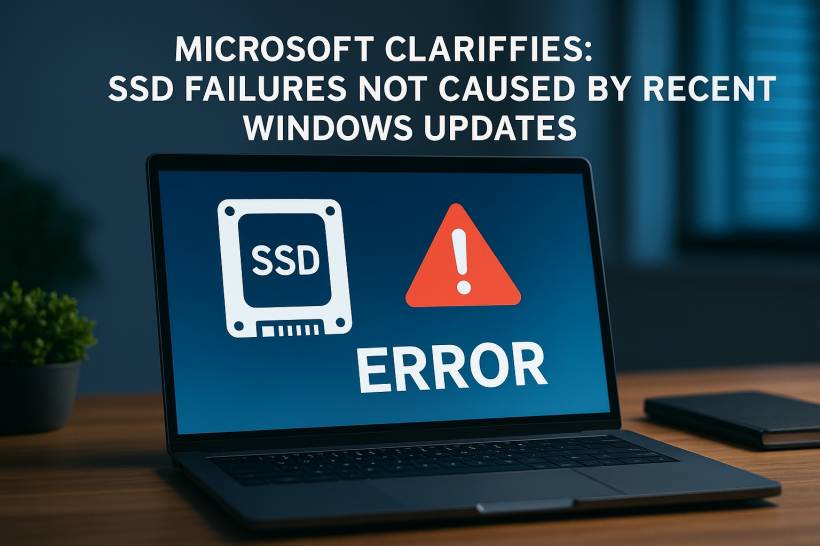For the past few weeks, whispers in the tech community have grown louder, with claims that certain Windows 11 updates were breaking solid-state drives (SSDs). Some users suggested that after applying recent patches, their SSDs—particularly those using Phison controllers—either vanished from Windows or failed altogether. On the surface, this sounded alarming. After all, no one wants a routine security update to lead to sudden data loss. But after thorough investigations, both Microsoft and Phison have stepped in to calm the storm.
The Rumors: Updates Blamed for SSD Failures
The controversy centered on two Windows 11 updates released in August 2025: KB5063878 and KB5062660. Posts on social media and forums hinted that applying these patches could render some SSDs undetectable. The alleged failures appeared to involve drives with Phison controllers, sparking fears that a widespread compatibility issue might be at play.
The earliest known complaint came from a user in Japan, who claimed their SSD became unusable after installing the patch. A handful of others chimed in with similar experiences. While the volume of reports wasn't massive, the idea that a Windows update could "kill" a hard drive spread quickly.
Phison Responds with Extensive Testing
Phison, the company behind many SSD controllers, was quick to acknowledge the claims. On 18 August 2025, they launched their own investigation. By 27 August, the company reported its findings: after conducting more than 2,200 test cycles across 4,500 hours of testing, it could not reproduce the issue.
Phison emphasized that no manufacturing partners or enterprise customers had reported similar failures either. This suggested the issue might not be systemic, but perhaps related to isolated cases, such as a defective batch of drives or specific system setups.
Microsoft's Independent Investigation
Naturally, Microsoft didn't stay quiet. The company carried out its own investigation after the chatter online began picking up. Their conclusion echoed Phison's: there was no evidence linking the August updates to SSD failures.
In a service alert later picked up by Bleeping Computer, Microsoft stated clearly that testing did not uncover any correlation between the security updates and the type of SSD malfunctions described. Still, the company promised to continue its usual practice of monitoring feedback and investigating any new reports that emerge after each patch release.
Why Some Users Still Saw Failures
If neither Microsoft nor Phison could reproduce the problem, what explains the small number of complaints? Some industry watchers believe the issue could come down to:
Bottom Line: No Cause for Widespread Panic
While the idea of a Windows update bricking an SSD makes for a worrying headline, the reality is less dramatic. The number of confirmed cases is extremely limited, and both Phison and Microsoft have gone on record to say there's no evidence of a causal link.
For most users, there's no need to hit the brakes on updates. In fact, skipping security patches often poses a bigger risk than the fear of rare, unproven hardware failures. That said, it's always smart to keep backups of important files—whether or not you're worried about a Windows update.




